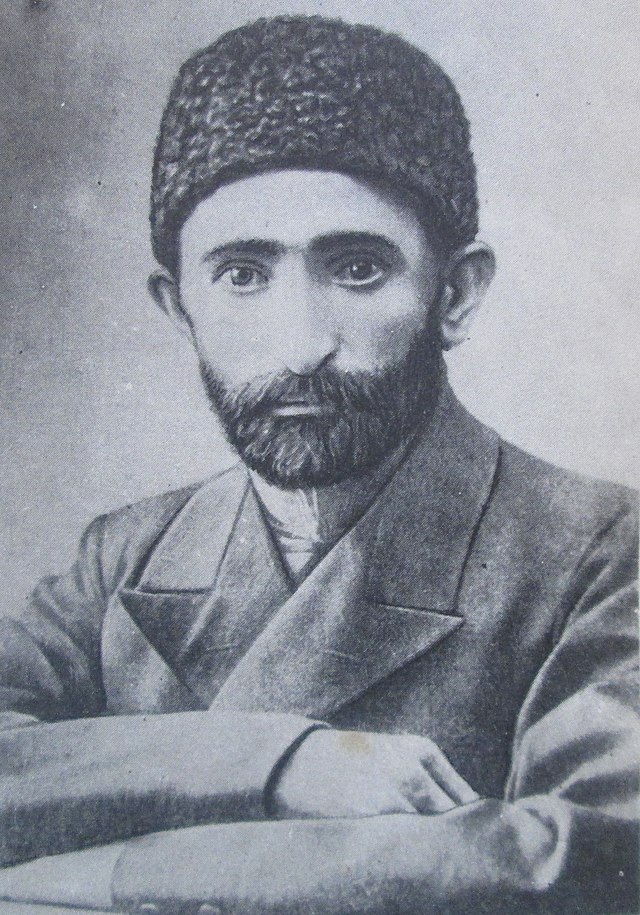Content deleted Content added
HistoryofIran 95,130 edits |
HistoryofIran 95,130 edits |
||
Line 32: [[Image:Sabir in Molla Nasreddin.jpg|thumb|Depiction of Mirza Ali-Akbar Sabir in a issue of the ''[[Molla Nasraddin (magazine)|Molla Nasraddin]]'', with the headline "Our sick poet Sabir. God is angry with him for writing such irreligious words." Dated 29 May 1911]] In 1903, Sabir's debut poem was published in the [[Tbilisi]] newspaper ''Sharq-e Rus'' ("East of Russia"). He was unknown outside of Shamakhi at the time. In 1909, he became a writer of the ''[[Molla Nasraddin (magazine)|Molla Nasraddin]]'' satirical magazine, which was also based in Tbilisi.{{sfn|Javadi|2020}} During a time where classical Persian poetry was favored by the elite and writers, the ''Molla Nasraddin'' used the everyday language of the Turks of the South Caucasus, a practice which was also taking place in other satirical journals.{{sfn|Hodgkin|2023|pp=42, 45}} With an extensive readership spanning the [[Volga region]], [[Siberia]], [[Anatolia]], Iran, and [[South Asia|South]] and Central Asia, the ''Molla Nasraddin'' had the largest audience of all the Muslim publications of the [[Russian Revolution of 1905]]. This was largely due to the abundance of political cartoons that were even understandable to the uneducated.{{sfn|Hodgkin|2023|p=44}} Sabir used many [[pseudonym]]s, but was commonly known as Sabir ("patient") and Hophop ("[[hoopoe]]"). Sabir and the editor of the ''Molla Nasraddin'', [[Jalil Mammadguluzadeh]], were well-known proponents of using Turkic in literature.{{sfn|Hodgkin|2023|p=45}} Sabir also published for numerous other journals, including ''Hayat'', ''Fuyuzat'', ''Rahbar'', ''Dabestan'', ''Olfat'', ''Ershad'', ''Haqiqat'', ''Yeni Haqiqat'' and ''Ma'lumat''.{{sfn|Javadi|2020}} Due to his work, Sabir made countless enemies both at home and overseas. Both he and the ''Molla Nasreddin'' were labeled as heretical by some of the conversative mullahs in [[Tabriz]]. As the opposition against Sabir escalated, he defended his beliefs in a poem dedicated to the inhabitants of Shirvan:{{sfn|Javadi|2020}} | |||
 Article Images
Article Images